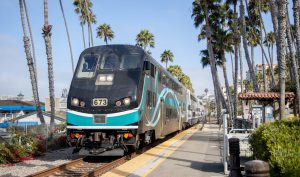 The Southern California Regional Rail Authority (SCRRA) awarded Parsons Corporation a USD 50 million contract for engineering services on Metrolink rail expansion and rehabilitation project.
The Southern California Regional Rail Authority (SCRRA) awarded Parsons Corporation a USD 50 million contract for engineering services on Metrolink rail expansion and rehabilitation project.
Parsons will support the plan for expansion, rehabilitation and state of good repair projects that will improve the safety and service of the Metrolink system and its facilities.
The contract includes project management, construction management, and staff assistant services in support of planned improvement projects across the Metrolink network.
Parsons supported SCRRA on the implementation of the US first successfully positive train control system for the commuter rail network.
The Metrolink’s Southern California Optimized Rail Expansion (SCORE) is a USD 10 billion capital improvement programme to meet the state’s ambitious goals to reduce greenhouse gases and improve access to affordable housing and other opportunities.
The Metrolink rail expansion project involves the modernisation, upgrade and extension of the railway system by 2028. The first phase of the SCORE project is expected to be completed in 2023.
The SCORE programme expands capacity of the entire Metrolink system to accommodate service that is more regular and frequent, throughout the entire service day. The programme will increase the service on most of its lines to 15- and 30-minute frequencies.
Under the project, the authority plans to carry out grade crossing improvements, station and signalling improvements as well as track construction including double, triple and quadruple tracking works, the modernisation and expansion of the maintenance facilities and the introduction of lower emission train fleet.
It is expected that starting from 2023 until 2078 the completed project will remove 3.4 billion vehicle-miles traveled and will reduce the greenhouse gas emissions by 51.7 million metric tonnes.
Metrolink is the US third largest commuter rail system connecting six counties in Southern California region. the railway system removes 9.3 million car trips annually, taking pressure off freeways and reducing bottlenecks. Currently, the system removes 130,000 metric tonnes of CO2 greenhouse gases annualy, based on an average of 9.3 million car trips.
Share on:



